Here at Holistic Nutrition Hub we decided to join the “expert roundup” craze and publish a really big piece of our own.
And since we sincerely believe that the hardest part of becoming a nutrition practitioner is to start a nutrition business the right way, we wanted to get the following questions answered for you:
- What is the biggest mistake new practitioners make when starting a nutrition consulting business?
- What can they do to avoid it?
To do so, we reached out to 40+ Experts in the Wellness Business and Holistic Nutrition industries. We made sure that all of them had experience working with nutrition professionals to guarantee you the best answers possible.
All in all, we collected 21 extremely helpful responses from some of the best experts in the field.
You’ll find lots of gems within each expert’s answer. Take the time to read through them because the slight nuances that they uncover simply can’t be summarized. Yet they are often the deciding factors in a successful nutrition business strategy.
We’ve also created this handy list of experts with quick links to each of their answers.
21 Experts Share The Top Mistakes To Avoid When Starting A Nutrition Consulting Business:
Now let’s jump right into the answers!
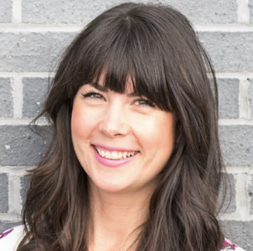 |
Joy McCarthy |
| joyoushealth.com |
 |
They spend far too much time working IN their business (ie. putting together protocols, doing research, writing meal plans) and don’t work enough ON their business (content marketing, social media etc). Working on your business is just as important.
If you don’t work ON your biz, how are you going grow, build your brand, create awareness for your services? Relying on referrals simply isn’t a strong enough strategy to grow a thriving business. Something I do is that I live by my calendar. I schedule everything in, this is especially important for someone starting out. Schedule a couple of hours each day to devote to creating content on your blog, sharing on social media whether that be posting on Facebook or answering questions on Instagram, or all of the above! The more attention you give social media, the more it will grow. It’s a passive way to build your business by sharing your expertise online and building your cred as an expert in your field. The content you develop for your blog is the primary source of what you share on social media. @joyoushealth said: If you don’t work ON your biz, how are you going grow, build your brand, create awareness for your services? Relying on referrals simply isn’t a strong enough strategy to grow a thriving business. Click To Tweet |
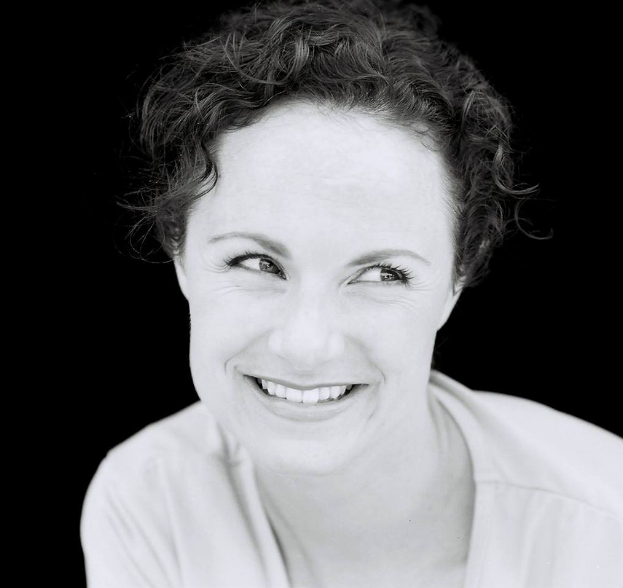 |
Krista Goncalves |
| Wellness Business Consultant & Copywriter | |
| kristagoncalves.com |
 |
I was a Holistic Nutritionist and Nutritional Counselor for over 5 years. Like so many other practitioners I see entering into this field, I was so fired up and ready to help people after I got out of school and started my practice that I tried to be ALL things to ALL people ALL of the time. I didn’t want to discriminate – or so I thought that’s what I would be doing if I turned anyone away. It was not only exhausting (physically and mentally), but it really diluted the impact that I wanted to make and the effectiveness of the programs & services that I was offering. How can they avoid it? Looking back on my experience as a nutrition professional (who ran both 100% offline and then eventually 100% online businesses), I would have spent the time to learn about and dig deeper into niche marketing. This means choosing a specific area and demographic to focus all of your efforts on, hence being able to refine and target your marketing strategy as well. I didn’t end up doing this until near the end of my career in holistic nutrition, but once I did make that shift, everything about my business transformed very quickly! I had finally found my niche and felt like I was making the impact in people’s lives that I had always dreamed I would – not to mention a bump in my financial bottom line. Bonus! Krista @LemonadeHealth said: Looking back on my experience as a nutrition professional, I would have spent the time to learn about and dig deeper into niche marketing. Click To Tweet |
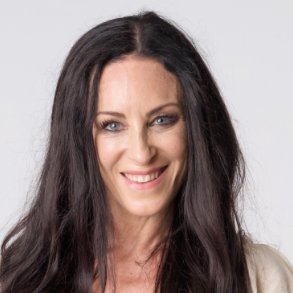 |
Rachel Feldman |
| Business Coach For Health Professionals | |
| rachelafeldman.com |
 |
I see so many new coaches spending time perfecting a logo or worrying about the perfect Instagram profile. I am not saying a great logo is not important for your brand or an IG account is not key for building your brand either, but at the beginning of your business, you should be spending time perfecting your 1. niche 2. sub-niche 3. message I see coaches who spend thousands on the perfect website or hire a marketing company and yet they don’t even know who they serve. When I ask this coach who they help and why they often say: “I help people to balance” or “I help people de-stress and balance” This is not enough to make the potential client hire you. Tap into your story. Stop overthinking social media. Social media is a way to share your story and touch somebody so they PM you or sign up for a freebie you have or a free webinar. Spend more time crafting messages that speak to your niche. Make sure you are using words that the masses use and not health coaches. We often use words like clean eating or clean eats or speak of GMO’s when the average person wants to stop eating doughnuts, sugar, and coffee. Spend time crafting your signature power point and your signature system – the one that can help your potential client go from A to Z. Ironically this is the system that helped you in your journey. How can they avoid this mistake? It can be easy to fall into this trap because we see everyone else have the shiny and pretty website but trust me, you will have so much more success when you take the time to work on your foundation.
Make sure to start working your business in the areas that bring you an ROI. 1. List Building: Get at least 3 opt-in freebies 2. Marketing the message: Get clear on who you serve. Craft your “about me” story 3. Make sure to work on the Work with Me 4. Have your Signature Offering 5. Social Media – be consistent. Even if you never want to be a social media rockstar, you want to have social media so people know what you are about and who you serve. Keep it simple. Blog. Do Videos. Share and Educate. I hope this helps as many make mistakes and give up while many don’t and have great success. Rachel @HealthCoachBiz1 said: Tap into your story. Stop over thinking social media. Social media is a way to share your story and touch somebody so they PM you or sign up for a freebie you have or a free webinar. Click To Tweet |
 |
Abigail Hopkins |
| thatcleanlife.com |
 |
The biggest mistake I see new practitioners make when they are starting a nutrition consulting business is getting overwhelmed with the big picture and trying to do it all. Starting your own business as a new practitioner can be extremely overwhelming, and it can feel like you need to do “all the things”. A website, social media, intake packages, getting clients, workshops, list building and the list goes on.
This feeling of overwhelm can be completely paralyzing. You feel like you have so much to do, that you end up spinning your tires, jumping between tasks or even worse, doing nothing at all. How can they avoid it? To avoid the overwhelm, first, you need to accept that building a business happens over a series of years, not days or months. Once you accept this, you can focus on taking one step a time. When you try to do all of the things, you end up doing nothing well. Instead, select one thing to focus on at a time, before moving onto the next task. The number one priority of a business is to be profitable, so I highly recommend focusing first on getting paying clients and treating them really well. Turn them into raving fans by giving them a good experience and the results they are looking for. Here are some effective strategies for how you can get 5 new clients in the next 30 days. Once you’ve started to make money by working with clients, you can move onto your next step. I promise that things become much more clear and obvious as you get more real-world experience! @abigailkeeso @thatcleanlife said: You need to accept that building a business happens over a series of years, not days or months. Click To Tweet |
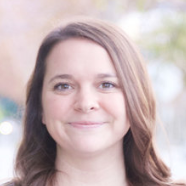 |
Stephanie Long |
| stephanielong.ca |
 |
The biggest mistake I see new practitioners making is that they feel like they need to have EVERYTHING ready in order to start their business. I’m talking creating dozens of handouts, pre-made client health plans, a perfect website and all of the bells and whistles.
What I usually tell new grads and those I mentor is that it’s ok to take it slow and build your business up as you go. Once you start seeing clients, your business will naturally build and there is no need to create handouts and plans that you’re not entirely sure yet if you’ll need them or not. “Just start” is the best advice I could give! Stephanie Long said: Choose a few simple things to focus on and grow from there. There is also no need to be perfect, it is all about taking imperfect action and building up. Click To Tweet |
 |
Kylie Malcolm |
| wellpreneurial.com |
 |
Not fully understanding the technical side to a wellness business in order to get started, and following other coaches methodologies that don’t apply to your business model. I’ve been fortunate enough to work with hundreds of practitioners 1:1 and thousands of practitioners to provide guidance and advice, so I’ve seen it all. I’ve seen the successes and failures (including my own) and there is no one size fits all solution to business – just as in health and wellness. The biggest mistake I’ve seen is not mapping out the workflow of their business before getting started. This means knowing what platform to use for your website, how it connects to your mailing list, do you even need a mailing list, how are you getting paid and what do you want your business to do for you online. Second to that is following your peers’ advice on what to use and how to use it when it may not apply to your business model at all. This, in turn, causes tech headaches, frustration in getting your business off the ground and moments of hesitation on sticking to your new-found career. Just because your practitioner friend is using a particular WordPress theme, doesn’t mean you need to as well. You can avoid making these two mistakes by working out WHAT you want your business to be and WHAT you want your business to do for you. Some great questions to ask yourself are: 1. What do I want my website to do for me? (be a pamphlet for my business, handle online payments and appointments, be as automated as possible with online programs and courses…) 2. What platform is best for me to host my website? (Wix is a great starting point that is a very visual style, WordPress is perfect for growing and scaling your business) 3. Do I need to build a mailing list? (Ideal if you want to find clients online) 4. How do I want to get paid? (PayPal and Stripe are the best methods, and each integrates very differently to your website host depending on who you choose) Once you know the answers to these questions, you’ll be in a far better place to build your business with much less frustration to really hit the ground running. If you need an extra boost, be sure to join Club Wellpreneurial – a free business building toolkit with tutorials, downloads and more to help you build your business with ease. Kylie Malcolm @Wellpreneurial said: Just because your practitioner friend is using a particular WordPress theme, doesn't mean you need to as well #nutrition #business #website Click To Tweet |
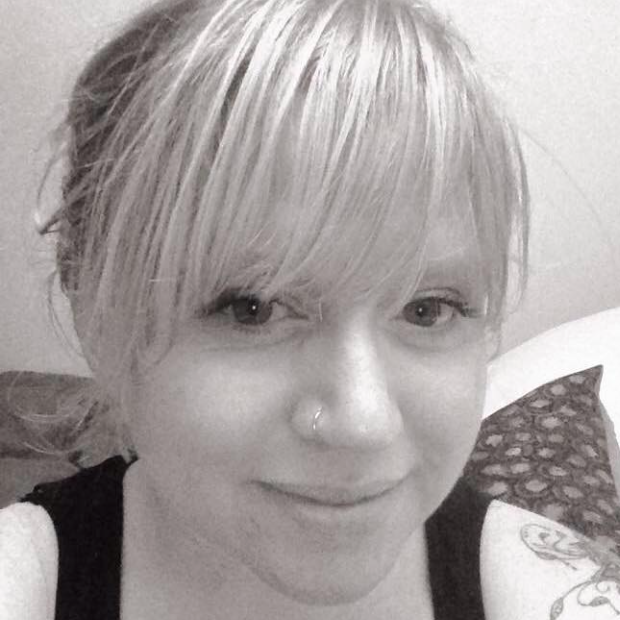 |
Kate McLaughlin |
| csnn.ca |
 |
The biggest mistake I see nutritionists making is having the belief that there isn’t enough work out there for them and giving up before they’ve even really started. The fact of it is that unless you are either really well connected or really lucky, clients are not going to be lining up around your block as soon as you hang out your sign. This doesn’t mean the work is not out there, it means just like with the vast majority of new businesses, no one knows who you are, what you’re offering or how what you’re offering is going to be of benefit to them….YET. You can’t expect to create a website or a Facebook page and that be the end of your marketing efforts. Successful nutritionists are marketing themselves every chance they get. They are networking, creating fresh content to share and aligning themselves with other like-minded businesses or professionals. At the end of the day, your consulting practice is just like any other start-up business and start-ups are expected to put out more than they take in for roughly the first three years. You may also discover during this time that consulting really isn’t for you. This is 100% okay, consulting isn’t always for everyone. But guess what? This still doesn’t mean that there isn’t work out there for you within the industry. This industry is vast, getting bigger every year and has a multitude of paths to explore. So don’t let your exploration feel daunting, be excited by the freedom. If you do ever feel like giving up, reach out for support. We tell all our students that their relationship with the school does not sever once they receive their diploma. Whatever city you live in or school you graduated from, remember the people who supported you through your studies can continue to be a great resource throughout your career. Kate @CSNNVancouver said: your consulting practice is just like any other start-up business and start-ups are expected to put out more than they take in for roughly the first three years. #business #nutrition #realtalk Click To Tweet |
 |
Cordelia McFadyen |
| pacificrimcollege.com |
 |
I commonly see two “mistakes” that new nutritionists make.
How can they avoid it?
@MtgCordeliaFM @PacificRimCol said: Find a position that aligns with your knowledge and where you see yourself in the future before committing to starting a business. Click To Tweet |
 |
Leesa Klich |
| Content Specialist For Wellness Professionals | |
| leesaklich.com |
 |
Trying to do All. The. Things. I know it can be very overwhelming when starting out as a new practitioner and biz owner. #beenthere Everyone has biz advice. Amirite? What *should* you focus on: Website? Copywriting? Graphic design? Social media? Program creation? Client work? List-building? Blogging? Here’s how to avoid spinning your wheels on All. The. Things. – Because that just slows down your success. First – Hone in on your niche, target market, and your uniqueness. (Easier said than done…I know!) Clarity is a critical first step. Second – Set some realistic (but stretch) goals on where you want to direct your business. Then create a targeted strategy how to reach them (i.e. don’t include All. The. Things.) PRO TIP: Goals should be “action-based,” not “results-based.” Your goal should be the action that you can take, not results which you may not be able to control. For example, an action-based goal would be to pitch other blogs/podcasts every week; as opposed to a results-based goal like being featured every week. This way you will achieve your goals because they’re actions that you do. 😉 Third – Now that you have your clarity and biz strategy, spend your time doing what you love, what you’re personally awesome at, and what you can’t outsource. If you’re feeling overwhelmed or strapped for time, consider outsourcing the rest. When you rock your awesomeness, you will stand out and become known for your excellence in that area. If you force yourself to shlep through and learn a bunch of new skills at the same time, it’ll take you foreeeeever to reach your goals. For example, you can’t outsource your client work, discovery calls, and CEO dates. But, if you’re ah-mazing with people, maybe consider outsourcing your web design, graphics design, blogging, etc. to experts who can help you get a high quality result in much less time than it would take you. And if you’re not ready for super-high-end custom products or services, you don’t need to go all out for it! There are a bunch of less expensive high quality “done for you” products and programs out there where the foundational work is complete – you just have to customize and make them yours. @LeesaKlich said: First - Hone in on your niche, target market, and your uniqueness. (Easier said than done...I know!) Clarity is a critical first step. Click To Tweet |
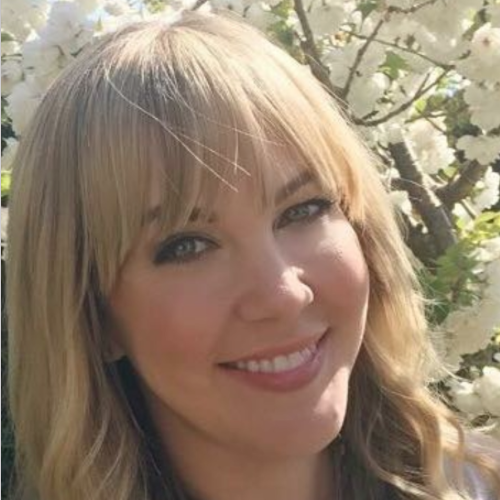 |
Leanne Young |
| President and CEO – Canadian Association for Integrative Nutrition | |
| integrativenutritionassociation.com |
 |
Many new practitioners are laser-focused on attracting clients and having a shiny new & marketable website which, of course, is important but one of the biggest (and scariest) mistakes Holistic Nutrition Professionals make when starting out is jumping the gun and seeing clients prior to getting basic business housekeeping set up. This includes adequate liability insurance and taking the time to get familiarized with their scope of practice. It is very important to understand and use safe language with the client and in marketing which often varies by province or state. I cannot drill it home enough how important these things are. It helps protect not only the practitioner and the wellbeing of the client but also preserves the integrity of the industry as a whole. I have many conversations with potential members who want to postpone liability insurance and professional membership until they are “established” because they perceive the cost too high when just starting out. Transitioning into a new role as an entrepreneur can be challenging, and understandably money is tight. That said, new practitioners must lay a strong foundation to in order to build a lasting empire. That foundation will protect your business and show the world that you are a professional who takes your responsibilities to the public seriously. Leanne Young @NutritionAssoc said: New practitioners must lay a strong foundation to in order to build a lasting empire. #business #nutrition #holistic #success Click To Tweet |
 |
Meagan Mae |
| Wellness Business Coach | |
| wellness-entrepreneurs-united.mn.co |
 |
When nutrition practitioners don’t develop a signature program or personal brand, they run the risk of having difficulty attracting clients.
To avoid this, consultants can spend time creating a specific program that is tailored to a specific niche. Perhaps their specialty is how to stay healthy with quick and easy meals, or weight loss strategies for the over-worked. Whatever they choose, it’s important to stick to this niche in all marketing and branding materials. Meagan Mae said: When nutrition practitioners don’t develop a signature program or personal brand, they run the risk of having difficulty attracting clients. Click To Tweet |
 |
Danielle McFarland |
| Co-Founder of Healthinomics | |
| healthinomics.com |
 |
Nutrition consultants often don’t set up their business from the start in a way that looks beyond the 1-to-1 delivery model. This approach results in receiving payment only for hours worked and doesn’t provide other revenue streams to generate income through. The reason the 1-to-1 business model isn’t effective on its own is that a lot of work goes into each client before, during and after an appointment – all of which needs to be accounted for. Introducing other revenue streams from the start can help increase the longevity of a nutrition consulting business. Something as simple as adding products for clients can transform a nutrition consulting business. For example, ebooks, online courses, reports, and videos. Even nutritional supplement partnerships can provide a good source of revenue. These are all products that, once established, will continue to produce revenue for your business and will require very little attention over time, if at all. The passive income generated from these products will be a great source of additional income that will especially help new practitioners as they grow their nutrition consulting business. Danielle @Healthinomics said: Something as simple as adding products for clients can transform a nutrition consulting business. Click To Tweet |
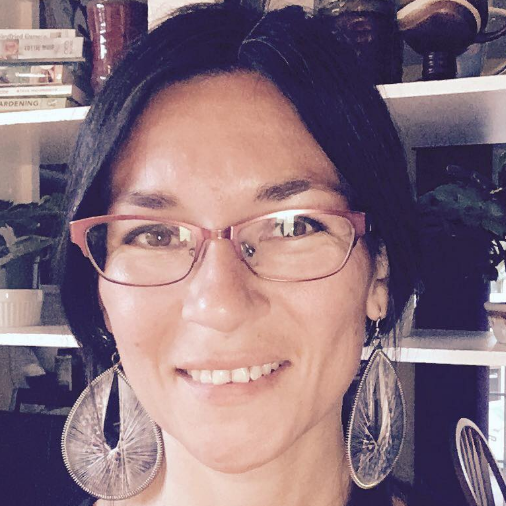 |
Sherry Rothwell |
| Nutrition Business Coach | |
| nutritionwisdom.ca |
 |
The biggest mistake I see is that practitioners spend too much time, money and effort on graphic design and website development before they have clarity on their message, niche, system, and brand. When people are new in business, they often don’t have clarity about what their service is or who it is for (they mistakenly think they can help everyone!). Since they haven’t really figured out yet who they are as a practitioner – and they are not entirely clear about what they offer – they dish out too much money on design and spend countless hours creating web copy that far too often becomes obsolete in just a few months! Rather than focusing first on learning about marketing, sales, business systems and how to provide a phenomenal service, they spend way too much time on their business’s image and how things look on the outside – instead of how things are on the inside. A gorgeous website will never compensate for a poorly developed service. Quality is first. Appearance comes after. That means creating an organized a step by step system that solves a specific problem – one that includes built-in solutions for the challenges that your clients will inevitably face. When you first get started in business, the quality of your service delivery must be prioritized over how professional or attractive your business looks! Rather than spending a fortune on graphic design and website development, here is what to do instead…. Before spending money on graphic design and website development, invest in your practice by first learning about business and marketing – so that you have a properly packaged service, streamlined systems that really take care of your clients and a strong marketing message that grabs your audience’s attention – that way when you eventually do up-level your web presence and brand, it will be built on a solid foundation. In the meantime, here is how to get started with a website design that is clean, simple and affordable:
Once you have your simple website in place, create your web copy (and then quickly get back to working with clients, while continuing to develop and improve your service!):
Make sure that everything you put out there either invites people to take you up on your free gift or to connect with you to chat about how you can help them! @SherryRothwell said: A gorgeous website will never compensate for a poorly developed service. Quality is first. Appearance comes after. Click To Tweet
|
 |
Cara Janzen |
| Instructor at CSNN London, ON | |
| csnn.ca |
 |
When I first started out, I tried to fit the mold for anyone and everyone who asked me for help. I had weight-loss clients, diabetic clients, young, old, rebalancing clients, pregnant or wanting to get pregnant clients…you name it. It was exhausting. I wanted to be something for everyone. I thought I could do it, I thought I had time, I thought I knew something that could help – or at least I could decipher the myriad of information available to make an educated conclusion to support them.
It was too much. It was frustrating when I wouldn’t see results like I expected. It was draining when I spent hours and hours researching, meal planning, consulting. It was discouraging because I wanted to help everyone. I started to become really unhappy with my business and my passion. I deeply care about people and their health and truly want to see everyone living a vibrant, healthy lifestyle. The second mistake I see and know through experience is being timid, shy and scared about not sharing their knowledge, product or services with the world. Waiting for the timing to be just right. Spending countless hours writing, redoing and preparing services, programs, scripts. Knowing they have solutions to someone’s concern but not wanting to jump in because of lack of confidence or experience. Just go for it. How to avoid those mistakes? To the first point – find your sweet spot, your niche, your tribe, your area of specialty. It actually means you can serve everyone better – you will know when you can truly help someone, and when it’s the right thing to do to refer them to a fellow practitioner who knows more about what they are going through or what their health goals are. If you specialize, it helps you become the expert. You can still spend many hours researching, but at least it will be on your main topic, your area and you will begin to further develop and fine tune your skills and master your ideal client’s needs. You will appreciate knowing what to focus on and you will truly enjoy your work! Your time will be spent more wisely and efficiently when you have a focused topic. Your clients and those they spread the word to, will know exactly what you do and why they should come to you. You will attract the right clients and will start to truly and significantly see changes in the lives of those you work with. To the second point – Break free from limiting thoughts. You cannot wait for the timing to be exactly right before you step out into the world and before you send off your first newsletter or social media post. You have something to share with the world, so share it. Don’t worry if it will not resonate with everyone. It won’t. You will resonate with those who you can make an impact on. Don’t miss your opportunities to share because you feel you are not ready to share. Once you start sharing your knowledge, your programs, your skills, you will learn what works and what doesn’t and you will modify what you offer each time. Even if it is not perfect, don’t stress, just take a step forward, share and trust yourself. That is part of personal and professional development! Cara Janzen said: Break free from limiting thoughts. You cannot wait for the timing to be exactly right before you step out into the world and before you send off your first newsletter or social media post. Click To Tweet |
 |
Jake Toughill |
| Natural Health Copywriter | |
| jaketoughill.com |
 |
You know, I get a lot of funny looks when I say this but I think a big mistake that new nutrition practitioners make when opening up shop is not learning Sales Psychology. Yep – Sales Psychology. But before you get all terrified of the word psychology and run away, let me explain… For the most part, we all suffer from the exact same cognitive biases. What’s that mean? Well…we all have flawed decision-making capabilities, influenced by our emotions and deeply ingrained primal thought processes. The best way to quickly grow a business is to understand these thought processes. Here’s an example: that new car you bought. Yeah, you probably didn’t need it. The salesman/ads hit all the right emotional points. Later on, you justified your purchase with logic, telling yourself that super fancy safety feature is perfect for your kids or the cushioned seats will help with long car rides. In fact, our brain will literally change our perceived reality to help ensure our beliefs remain true – even if they aren’t. (That’s why you can’t win an argument with someone). Here’s a powerful example of cognitive biases and how they influence our behavior: When you give something away for free or perform a favor for someone, they feel strongly compelled to return the favor or buy something from you. It’s known as the rule of reciprocity. You know how guilty you feel not buying something from the little old lady who gave you a free sample at the grocery store? Yeah, that’s the rule of reciprocity punishing you. How could you implement that in your business? Well, how about giving away a free 15-minute consult and providing helpful advice during the consultation? Then, at the end of the consult, you could ask the client to sign-up for a paid service. Since you understand the rule of reciprocity, you know it’s going to be pretty hard for this person to say no after you just gave them something free. You see, the human mind is a fascinating thing. If you can understand the mechanics behind why people buy things or how they make decisions, you’re going to do really well in your business. I would even go so far as to say this is what separates successful business owners from the unsuccessful. Look… sales psychology isn’t hard to learn. I’d even say it’s fascinating… You can snag a couple books, read them, and implement the strategies right away. Two really great books on the subject are Influence by Dr. Robert Cialdini and Cashvertizing by Drew Eric Whitman. Those two books alone will put you leagues ahead of competitors. Jake Toughill said: The human mind is a fascinating thing. If you can understand the mechanics behind why people buy things or how they make decisions, you're going to do really well in your business. Click To Tweet |
 |
Raina Lutz |
| RHN Business Coach | |
| raina@lutznutrition.ca |
 |
Spinning your wheels thinking you need to do it all at once. Truth: The more we spread ourselves thin, the less we actually accomplish. Story Time: This was very evident to me after 2 years (the first ones) in my business where I didn’t know what I was really doing, and wasn’t asking for help. When I started putting the real time in making movements forward is when I really started to see growth. When I started investing and making REAL work for myself instead of floundering around from random training to training without really putting in the real necessary work is when I started to see true growth. When I started looking inward at what I wanted to do, say, help people with, STAND FOR – instead of looking around at others for marketing or branding ideas. Life Lessons: You are a reflection of what your clients will have to do – the more work you put into them, the more they’ll take responsibility and put more work in, thus getting better results! This doesn’t mean you’re a slave – you still have boundaries, but you’re doing real work to help your clients and earning their trust while building your brand and fueling the wellness revolution! How can they avoid it? Support, support, support. Find a mentor and look up others who can help you, join support groups in your area. It’s so vital to have a community around you to fill your cup, to remind you why we got into this industry in the first place. To assure you that we’re on the right and true path with the real foods revolution. To excite you about helping others and re-live those good vibes you had as a student who was ready to kick down the schools’ doors and change the world right now! (We want the world and we want it… NOW!) The best way to avoid this mistake is, unfortunately, to actually make it – then when you look back after a few months and realize you haven’t accomplished much, you see that you really do need a community for support, for motivation, for deep encouragement. Reach out to others, we’re all here for each other. You can’t do it all at once, just like anyone else. One step at a time – just like how you would tell your clients. (Pssst, and get coaching so you can start changing the world without the overwhelm that comes in those first years!) |
 |
Amy Lippmann |
| Marketing Strategist for Health Coaches | |
| marketingforhealthcoaches.com |
 |
The biggest mistake I see new practitioners make is choosing the wrong marketing tactics for the stage of business they’re at.You see successful people share that that they got clients from doing ‘x’ or made a bunch of money by doing ‘y’.
Maybe you’ve tried these strategies but you just aren’t seeing the clients and revenue rolling in. What most successful entrepreneurs don’t share is what stage of business they were at when these tactics worked for them. So you might be trying these things and assuming something is wrong with YOU when they don’t work, or that you just need a bigger audience, or you just need ‘x’. It feels like a constant struggle for very little reward. I was a health coach for 5 years and have been helping coaches for the past 6 years. In my 11 years in the industry, one thing I’ve learned is that the most successful coaches focus on the strategies that align with the stage of business they’re at. Because something that works for a coach with a list of 5,000 people or a big social media following probably won’t work for a brand new coach just out of school. How can they avoid it? You can avoid this mistake by avoiding complicated strategies that rely on you having a large following or technical know-how. Instead, choose simple strategies that will work QUICKLY to bring you clients. One of my favorite strategies for new coaches… When you are just getting your start, speaking is a great strategy to start ‘putting yourself out there’. I used this strategy myself when I was a new health coach. I gave my first talk in the basement of a gym – and got 2 of my very first clients from that talk! I typically recommend speaking as a great tactic for new coaches because it doesn’t require a big list or audience. The venues you work with will do a lot of the marketing for you, so you can focus on delivering your talk to their existing customers or clients. Another reason I love speaking is because it gets you in front of a crowd of people that are pre-qualified. Just by showing up they’ve already raised their hand to say “yes! I’m interested in your topic!” Want to learn about the other 4 strategies that successful health coaches use to get clients? My free guide, “Fill Your Health Coaching Practice: 5 Proven Strategies to Consistently Get Clients…Even if You’re Just Starting Out”, will give you the guidance you need to get started. @LippmannAmy said: What most successful entrepreneurs don’t share is what stage of business they were at when these tactics worked for them. #wellness #business #marketing #nutrition Click To Tweet |
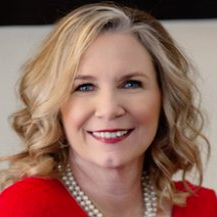 |
Karen Pattock |
| International Business Coach | |
| karenpattock.com |
 |
Starting a new nutrition consulting business is one of the most exciting adventures you’ll ever take. Your vision of improving the health and overall well-being of your clients is second to none.
The most important task to building your profitable nutrition business starts with building an email list, even before you think you’re officially ready. Unfortunately, email list building often ends up on the back burner, or in some cases completely overlooked, because other tasks feel more pressing. This is the biggest mistake I see Wellness Practitioners making on a daily basis. The reason email list building is key to your success is that the sole purpose of growing your email list is to have a group of ideal client subscribers that want to know more about you and what you have to offer. Those ideal client subscribers will convert into paying clients beyond any other marketing strategy you’ll put into action. Hands down, email list building will generate more revenue than anything else you will focus on in your business. Some of the excuses I’ve heard for not building an email list are:
The list goes on and on, but none of that matters because those that focus 50% of their weekly energy on list building, (even before they think they’re ready), have the most profitable businesses. Building a quality email list starts by creating a simple free offer that attracts a segment of the population that you’re trying to reach. The people, that by working with you, will turn into your very best paying clients. If you’re just getting started, I recommend keeping your freebie super simple. Create a one-page checklist, template or resource guide. Save it as a pdf and offer it everywhere you go. Here are 10 simple and free ideas for promoting your list building freebie:
There is no better time to start building your email list then TODAY! The effort you put into growing a highly targeted email list today will positively affect the future profit of your business. Aim for 10 new email subscribers per day. If you can do that you will have built the #1 asset of your business that will provide new clients for every program, product, or service you offer in the future. If you would like my help in figuring out who your ideal client is, where you should come into your customer’s journey, and what your free offer should be I have an awesome resource for you. It’s called 5 Steps To Create A Free Offer That Grows Your Email List With Your Perfect Ideal Client Subscribers @KarenPattock said: The most important task to building your profitable #nutrition #business starts with building an #email list, even before you think you’re officially ready. Click To Tweet |
 |
Nadya Pecherskaya |
| Founder at EHF | |
| ehfcommunity.com |
 |
The biggest mistake I see new practitioners make is they don’t have a clear plan. Way too often I see nutritionist hope that clients are just going to come from somewhere or the product is just going to be sold somehow. In reality, it takes a lot of time and effort to get one client, to get one sale. One must have a clear action plan for finding clients and closing sales. Opening an Instagram account and creating a website is not enough since there are millions of profiles and websites out there, there must be a concise business plan that includes a marketing plan and a financial plan. How can they avoid it? Before starting anything, a practitioner should really ask themselves what value they deliver, what problem they are solving and why somebody would hire them/buy from them. Only after answering these questions you can begin making a plan of how to build a sustainable practice. It’s not about rushing things, but if you are not taking steps further you also won’t get anywhere. A clear action plan will help you take the right steps in the right direction. Nadya Pecherskaya said: One must have a clear action plan for finding clients and closing sales. Opening an Instagram account and creating a website is not enough #nutrition #business #consulting Click To Tweet |
 |
Lynnel Bjorndal |
| Education Director for the NutraPhoria School of Holistic Nutrition | |
| lynnelbjorndal.com |
 |
One of the biggest mistakes new practitioners make is succumbing to self-doubt and feelings of not being good enough. It doesn’t matter how much you know or how many bells and whistles your website has, lack of confidence can easily overshadow all of it working like a self-fulfilling prophesy sabotaging your goals. A vocabulary of “what if’s”, “who am I to…” and “I can’t”, will bring your business to a swift halt right before throwing you down the rabbit hole. Suddenly new ideas become harder to come up with, motivation goes out the window, and your creativity feels crippled. Complete pre-occupation with your doubts ensues and you start hemorrhaging time, second-guessing everything from the size of the text on your logo to why you even got into this industry to begin with. The difference between those who succumb to doubt and those who do not is the ability to get to the source quickly, regroup, and confidently connect back to their vision. It is about honoring and embracing your feelings but also knowing when to hit the release button. Mastering this enables you to work with flexibility and fluidity, recognizing challenges and roadblocks as opportunities instead of allowing doubt to misinterpret these opportunities as “signs from the universe” that you are somehow on the wrong path. Creating a new business and establishing a presence isn’t going to happen overnight, and it isn’t going to be easy. It is not supposed to be easy, regardless of how easy you perceive it to be for others (because trust me, they have worked their butt off for it), but I can tell you this: it WILL be worth it. When you are in a career you are passionate about, with an intention to genuinely serve others while making a great living, an ingrained core belief that you are worthy can often be the missing link necessary for success. Have faith in yourself, your vision, and your abilities because that is what makes the impossible completely possible. Lynnel @NutraPhoria said: When you are in a career you are passionate about, an ingrained core belief that you are worthy can often be the missing link necessary for success. Click To Tweet |
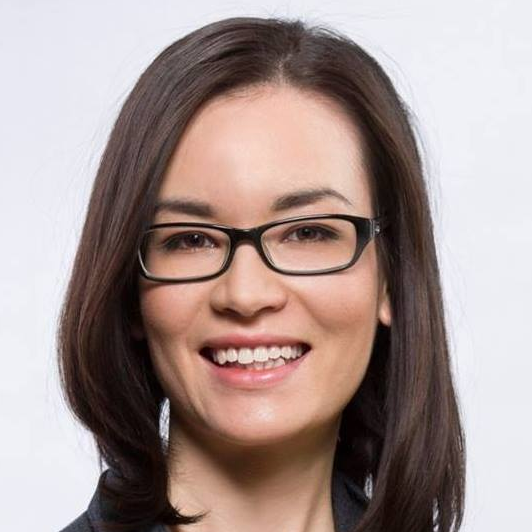 |
Magda Modzelewski |
| Certified Holistic Nutritional Consultant | |
| healthymagda.com |
 |
I see this mistake a lot – practitioners charging as little as $25 for a consult! Once you figure out overhead and time spent to book the appointment, also staying in touch with your client and other research, I don’t think anyone should be charging less than $150 per hour for a one-on-one consult. As well, there should always be an up-sell into a package of sessions or a group program (basically, the solution to your client’s problem). I’ve found that the more I charge, the better quality client I get. People will take you more seriously, respect you as an authority (which you ARE, by the way) and they’ll likely put in more effort to get the results they’re paying you to help them achieve. This is not always the case, as I’ve had a client pay me $1300 for a program, followed by radio silence. A small percentage of clients will fall off like this – don’t feel bad about it. That’s something that challenges me still – feeling too responsible for my clients. Another big mistake that I see is new practitioners suffering from paralysis by analysis. “What should I name my company? What should I specialize in? Do I need to wait ’til I have money for a website before I put myself out there? I need to take another course because I don’t know enough to work with people.” Again, I have first-hand experience in waiting for the right time to take action or take way too long perfecting things before putting them out. The faster you take action, the more progress you’ll make. It will never be perfect, and you need to embrace that quickly! Don’t let your ego get in the way of your client finding you because they ARE looking for you! @healthymagda said: The faster you take action, the more progress you'll make. It will never be perfect, and you need to embrace that quickly! Click To Tweet |
[convertkit form=5151496]
The End
Can’t believe you’ve made it this far!
21 opinions of prominent Nutrition Business & Marketing Experts on what mistakes you should avoid when starting a nutrition consulting business.
We would love to know what you think about these answers and which ones you’ll be working on first!
Leave your answer in the comments below and don’t forget to share this article with your fellow practitioners!
Sean is the co-founder of the Hub, a dedicated Personal Trainer and an Entrepreneur at heart. Passionate about all thing nutrition and fitness, he takes care of the HNH website, the community, and most of the laundry around the house. In his spare time, Sean loves building websites and writing about all things fitness, business, and marketing.



2 Thoughts on “21 Experts Share The Mistakes To Avoid When Starting A Nutrition Consulting Business”